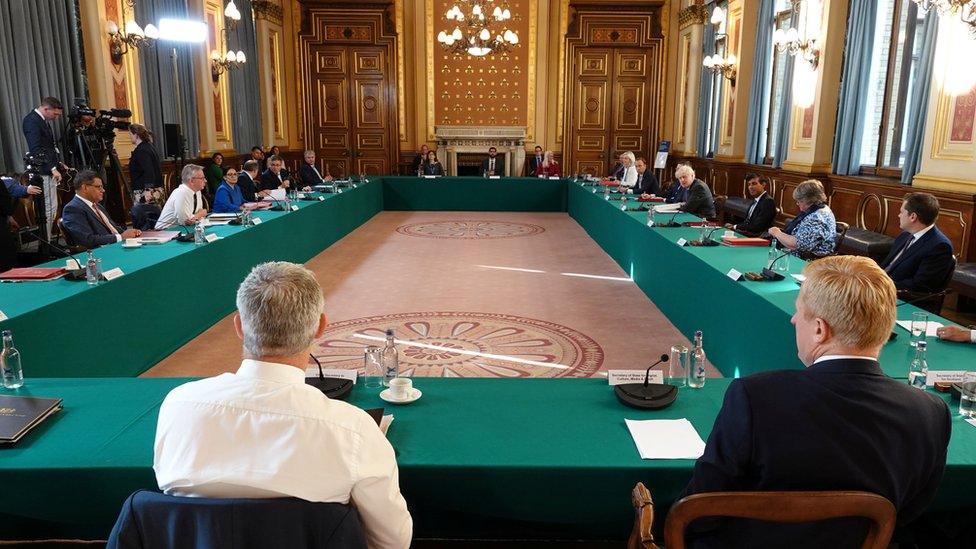Government ministers' pay frozen for one year
- Published

Prime Minister Boris Johnson chairing a cabinet meeting at the Foreign Office
Government ministers will have their salaries frozen for this year, No 10 has confirmed.
Boris Johnson's official spokesman said the decision was "only right" at a time of significant pressure on public services.
It comes as the independent body responsible for setting MP's salaries proposed a £3,000 raise for members.
Labour leader Sir Keir Starmer said on Monday, external that the money "should be spent on key workers".
Downing Street said MPs pay was a matter for the relevant body - the Independent Parliamentary Standards Authority.
An MP's current basic salary is £79,468.
They also receive expenses to cover the costs of running an office, employing staff, having somewhere to live in London or their constituency, and travelling between Parliament and their constituency.
IPSA's proposals would see the increase in MPs' salaries continue to be linked to the average rise for public sector workers.
MPs who have jobs as ministers get paid additional salaries, external - including the prime minister, who is entitled to an extra £79,286 this financial year.
The decision from Downing Street means the pay for a secretary of state in the Commons will be £4,168 less than they are statutorily entitled to.
No 10 said the move also meant ministerial salaries had remained frozen since 2010 and Lords ministerial salaries will stay at 2019/20 levels.
The PM's spokesman added: "The government is only responsible for ministerial salaries."